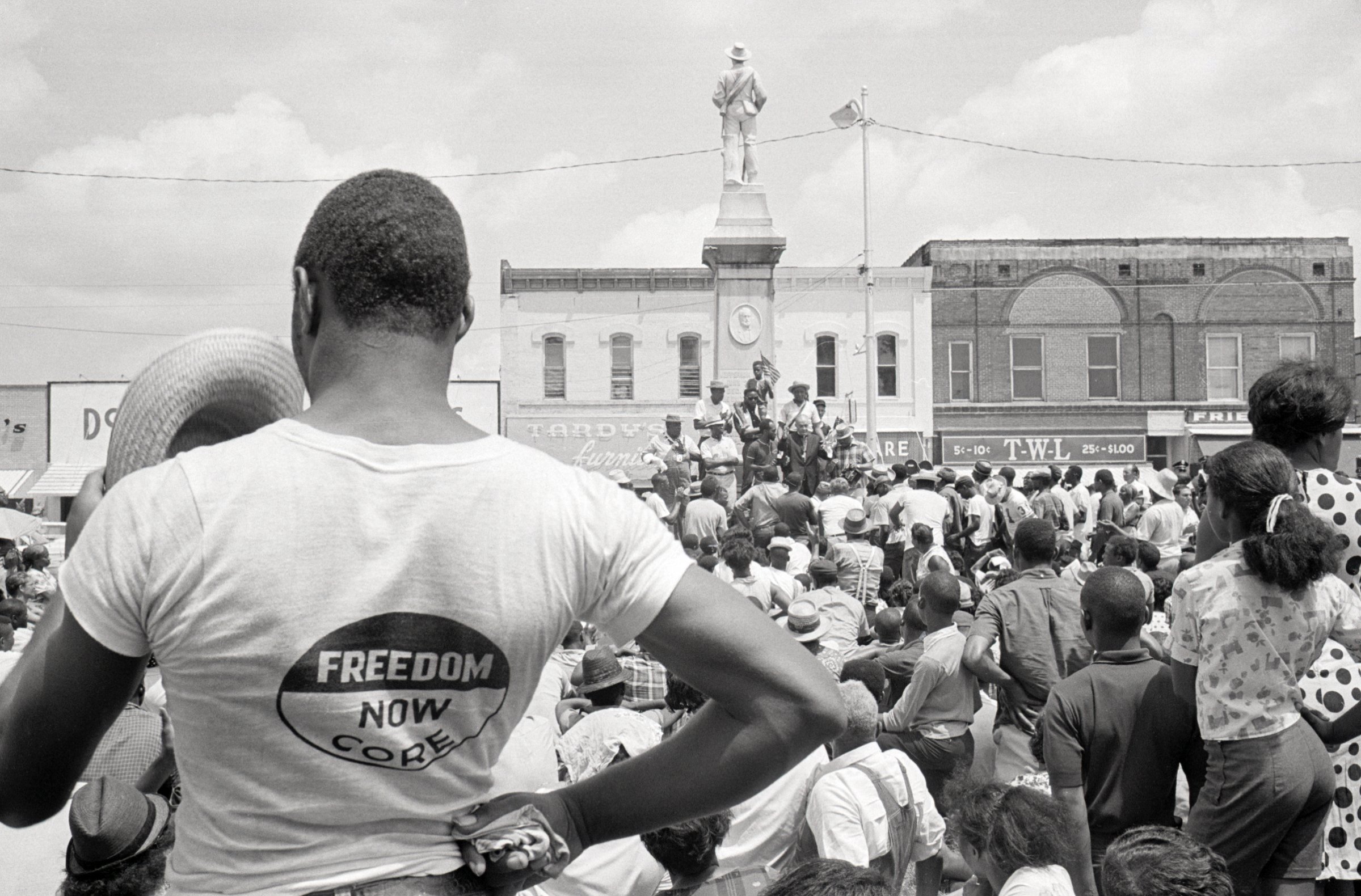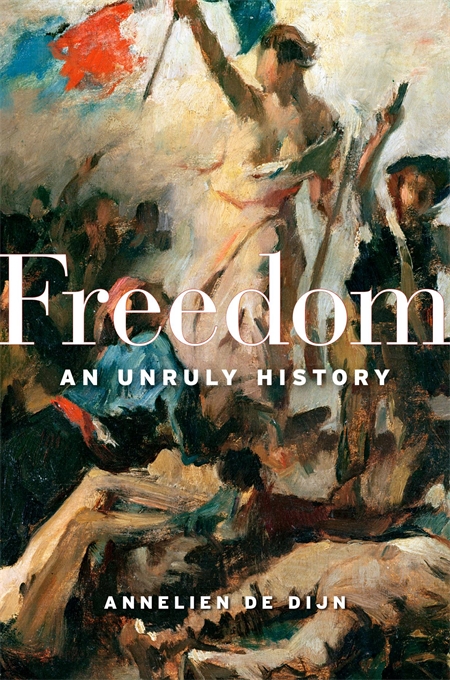
We tend to think of freedom as an emancipatory ideal—and with good reason. Throughout history, the desire to be free inspired countless marginalized groups to challenge the rule of political and economic elites. Liberty was the watchword of the Atlantic revolutionaries who, at the end of the 18th century, toppled autocratic kings, arrogant elites and (in Haiti) slaveholders, thus putting an end to the Old Regime. In the 19th and 20th centuries, Black civil rights activists and feminists fought for the expansion of democracy in the name of freedom, while populists and progressives struggled to put an end to the economic domination of workers.
While these groups had different objectives and ambitions, sometimes putting them at odds with one another, they all agreed that their main goal—freedom—required enhancing the people’s voice in government. When the late Rep. John Lewis called on Americans to “let freedom ring”, he was drawing on this tradition.
But there is another side to the story of freedom as well. Over the past 250 years, the cry for liberty has also been used by conservatives to defend elite interests. In their view, true freedom is not about collective control over government; it consists in the private enjoyment of one’s life and goods. From this perspective, preserving freedom has little to do with making government accountable to the people. Democratically elected majorities, conservatives point out, pose just as much, or even more of a threat to personal security and individual right—especially the right to property—as rapacious kings or greedy elites. This means that freedom can best be preserved by institutions that curb the power of those majorities, or simply by shrinking the sphere of government as much as possible.
This particular way of thinking about freedom was pioneered in the late 18th century by the defenders of the Old Regime. From the 1770s onward, as revolutionaries on both sides of the Atlantic rebelled in the name of liberty, a flood of pamphlets, treatises and newspaper articles appeared with titles such as Some Observations On Liberty, Civil Liberty Asserted or On the Liberty of the Citizen. Their authors vehemently denied that the Atlantic Revolutions would bring greater freedom. As, for instance, the Scottish philosopher Adam Ferguson—a staunch opponent of the American Revolution—explained, liberty consisted in the “security of our rights.” And from that perspective, the American colonists already were free, even though they lacked control over the way in which they were governed. As British subjects, they enjoyed “more security than was ever before enjoyed by any people.” This meant that the colonists’ liberty was best preserved by maintaining the status quo; their attempts to govern themselves could only end in anarchy and mob rule.
Get your history fix in one place: sign up for the weekly TIME History newsletter
In the course of the 19th century this view became widespread among European elites, who continued to vehemently oppose the advent of democracy. Benjamin Constant, one of Europe’s most celebrated political thinkers, rejected the example of the French revolutionaries, arguing that they had confused liberty with “participation in collective power.” Instead, freedom-lovers should look to the British constitution, where hierarchies were firmly entrenched. Here, Constant claimed, freedom, understood as “peaceful enjoyment and private independence,” was perfectly secure—even though less than five percent of British adults could vote. The Hungarian politician Józseph Eötvös, among many others, agreed. Writing in the wake of the brutally suppressed revolutions that rose against several European monarchies in 1848, he complained that the insurgents, battling for manhood suffrage, had confused liberty with “the principle of the people’s supremacy.” But such confusion could only lead to democratic despotism. True liberty—defined by Eötvös as respect for “well-earned rights”—could best be achieved by limiting state power as much as possible, not by democratization.
In the U.S., conservatives were likewise eager to claim that they, and they alone, were the true defenders of freedom. In the 1790s, some of the more extreme Federalists tried to counter the democratic gains of the preceding decade in the name of liberty. In the view of the staunch Federalist Noah Webster, for instance, it was a mistake to think that “to obtain liberty, and establish a free government, nothing was necessary but to get rid of kings, nobles, and priests.” To preserve true freedom—which Webster defined as the peaceful enjoyment of one’s life and property—popular power instead needed to be curbed, preferably by reserving the Senate for the wealthy. Yet such views were slower to gain traction in the United States than in Europe. To Webster’s dismay, overall, his contemporaries believed that freedom could best be preserved by extending democracy rather than by restricting popular control over government.
But by the end of the 19th century, conservative attempts to reclaim the concept of freedom did catch on. The abolition of slavery, rapid industrialization and mass migration from Europe expanded the agricultural and industrial working classes exponentially, as well as giving them greater political agency. This fueled increasing anxiety about popular government among American elites, who now began to claim that “mass democracy” posed a major threat to liberty, notably the right to property. Francis Parkman, scion of a powerful Boston family, was just one of a growing number of statesmen who raised doubts about the wisdom of universal suffrage, as “the masses of the nation … want equality more than they want liberty.”
William Graham Sumner, an influential Yale professor, likewise spoke for many when he warned of the advent of a new, democratic kind of despotism—a danger that could best be avoided by restricting the sphere of government as much as possible. “Laissez faire,” or, in blunt English, “mind your own business,” Sumner concluded, was “the doctrine of liberty.”
Being alert to this history can help us to understand why, today, people can use the same word—“freedom”—to mean two very different things. When conservative politicians like Rand Paul and advocacy groups FreedomWorks or the Federalist Society talk about their love of liberty, they usually mean something very different from civil rights activists like John Lewis—and from the revolutionaries, abolitionists and feminists in whose footsteps Lewis walked. Instead, they are channeling 19th century conservatives like Francis Parkman and William Graham Sumner, who believed that freedom is about protecting property rights—if need be, by obstructing democracy. Hundreds of years later, those two competing views of freedom remain largely unreconcilable.

Annelien de Dijn is the author of Freedom: An Unruly History, available now from Harvard University Press.
More Must-Reads From TIME
- The 100 Most Influential People of 2024
- Coco Gauff Is Playing for Herself Now
- Scenes From Pro-Palestinian Encampments Across U.S. Universities
- 6 Compliments That Land Every Time
- If You're Dating Right Now , You're Brave: Column
- The AI That Could Heal a Divided Internet
- Fallout Is a Brilliant Model for the Future of Video Game Adaptations
- Want Weekly Recs on What to Watch, Read, and More? Sign Up for Worth Your Time
Contact us at letters@time.com